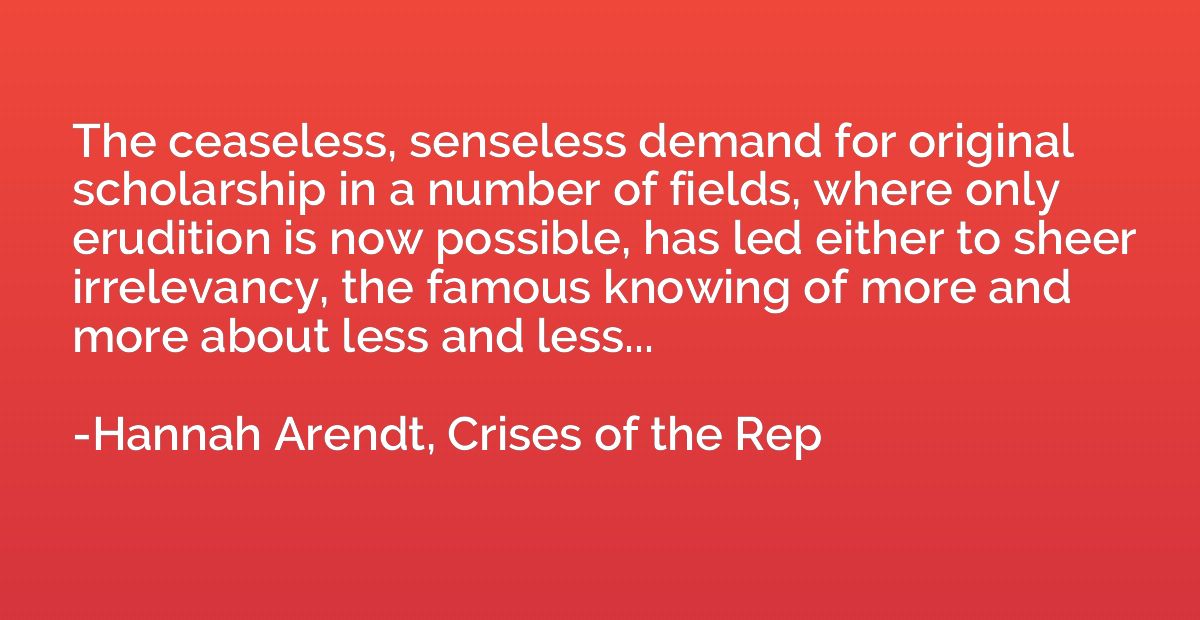Hannah Arendt, Crises of the Rep Quotes
A collection of quotes by Hannah Arendt, Crises of the Rep.
Hannah Arendt was a German-born political theorist and philosopher known for her profound contributions to the understanding of power, authority, and totalitarianism. Born on October 14, 1906, in Hanover, Germany, she grew up in a secular Jewish household. Arendt studied philosophy at the University of Marburg, where she was heavily influenced by Martin Heidegger and developed her critical thinking skills.
In the 1930s, as Adolf Hitler's power and anti-Semitic policies grew, Arendt fled to France and later to the United States. Her experiences as a stateless refugee shaped her understanding of human rights, citizenship, and the nature of violence. Arendt gained American citizenship in 1951 and became a lecturer and writer, teaching at several prestigious universities.
Arendt's most influential works include "The Origins of Totalitarianism" (1951) and "The Human Condition" (1958). She focused on the political implications of the Holocaust and totalitarianism, arguing that the modern era was characterized by the destruction of traditional politics and the rise of superfluous humans. Arendt coined the term "the Banality of Evil" in her controversial coverage of the trial of Adolf Eichmann, an SS officer involved in the Holocaust.
Through her writings, Hannah Arendt challenged prevailing assumptions about power, violence, and human rights. Her writing continues to shape contemporary political thought, making her an essential figure in the study of political philosophy and the understanding of the crises faced by modern societies. She passed away on December 4, 1975, but her ideas and intellectual legacy remain highly influential around the world.



